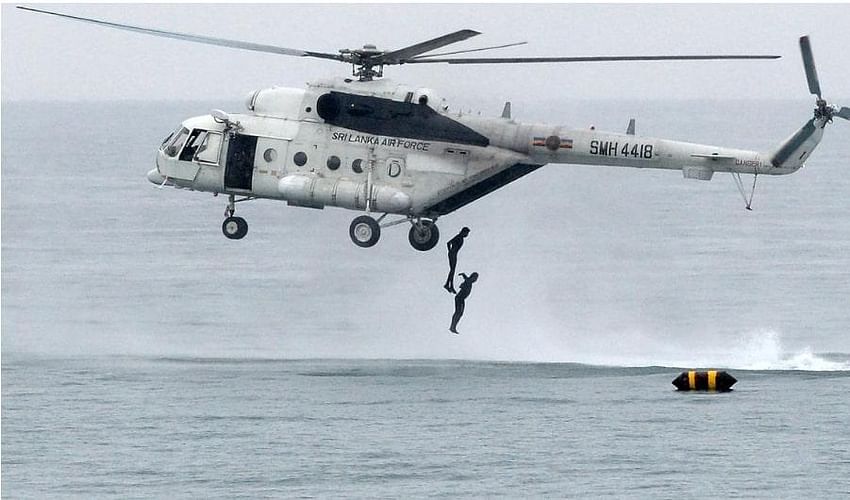Military
India's Strategic Leadership Prevents Pakistan-Sri Lanka Naval Exercise in Trincomalee, Safeguarding Regional Security

India's timely intervention has prevented a joint naval exercise between the Pakistani and Sri Lankan navies in the strategically vital waters of Trincomalee, reinforcing its role as a key regional security leader. Trincomalee, located on Sri Lanka's northeastern coast, holds immense importance for India's maritime security, as it controls access to the Bay of Bengal and the northeastern Indian Ocean.
Sources indicate that the naval exercise had been planned between Pakistan and Sri Lanka as part of their regular bilateral engagements. However, India's concerns regarding the exercise were communicated to the Sri Lankan government, and as a result, the planned drills were called off. This strategic move aligns with India's long-standing interest in safeguarding the security of the region, especially as it prepares for Prime Minister Narendra Modi’s visit to Colombo.
The navies of Pakistan and Sri Lanka have historically maintained cordial relations, with mutual port visits and joint exercises. However, India's strategic interests in the region and its deep commitment to regional security led to the cancellation of the exercise. Sri Lanka, recognizing India’s significant role in regional stability, respected India's concerns.
Military experts underscore Trincomalee’s strategic importance, noting that it provides India with a dominant position over much of the northeastern Indian Ocean. India’s proactive role in expressing concerns about the proposed exercise is an example of its leadership in ensuring regional peace and security. The close cooperation between Pakistan's Navy and China’s PLA Navy raised alarms in New Delhi, particularly given China’s growing influence in the region.
India has consistently maintained a watchful eye on foreign military presence in Sri Lanka, particularly after the docking of China's missile and satellite tracking ship, "Yuan Wang," at Hambantota port in 2022, which led to a diplomatic row. Similarly, when another Chinese warship docked at the Colombo port in 2023, India reiterated its concerns about China's increasing presence in the Indian Ocean region.
In response to these challenges, India has been enhancing its strategic partnership with Sri Lanka. In recent years, India has focused on developing Sri Lanka's energy infrastructure, especially in Trincomalee, which is home to one of the best natural harbors in the world. During Modi’s visit to Colombo, India, Sri Lanka, and the UAE signed an ambitious agreement to develop Trincomalee as an "energy hub," boosting Sri Lanka's energy security and supporting its economic growth.
Furthermore, India and Sri Lanka have strengthened their defense ties, exemplified by the signing of a defense cooperation agreement. This pact signals a significant shift in military relations, particularly after tensions from the Indian Peace Keeping Force’s intervention decades ago. India’s contribution to Sri Lanka’s security is also highlighted by its recent donation of a Dornier maritime surveillance aircraft, further cementing India's leadership role in ensuring peace and stability in the region.
Disclaimer: This image is taken from the Hindu.



